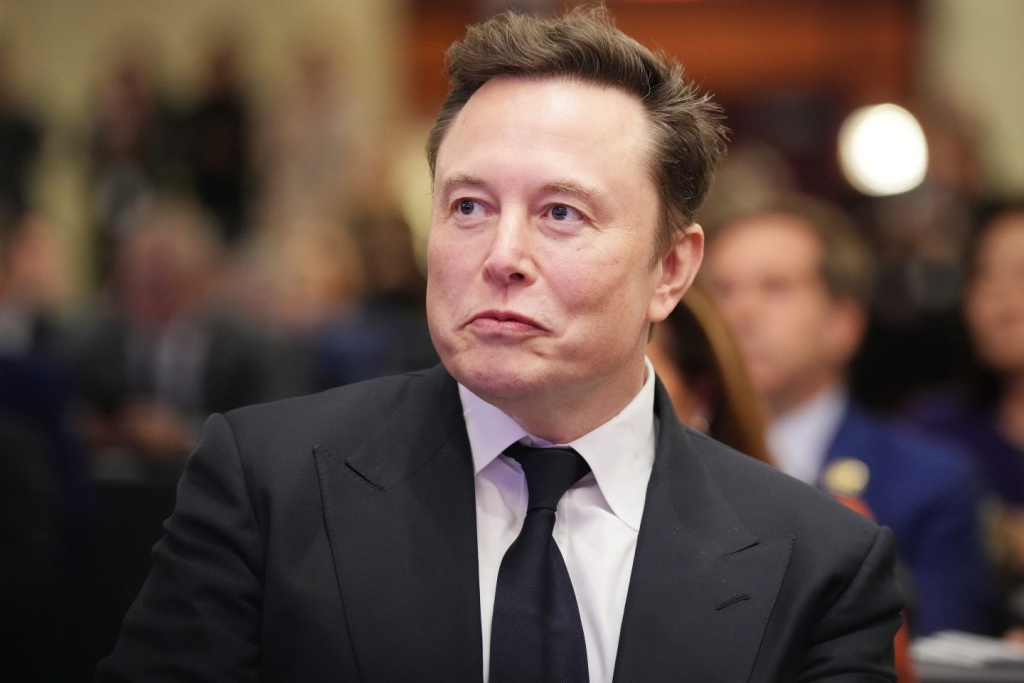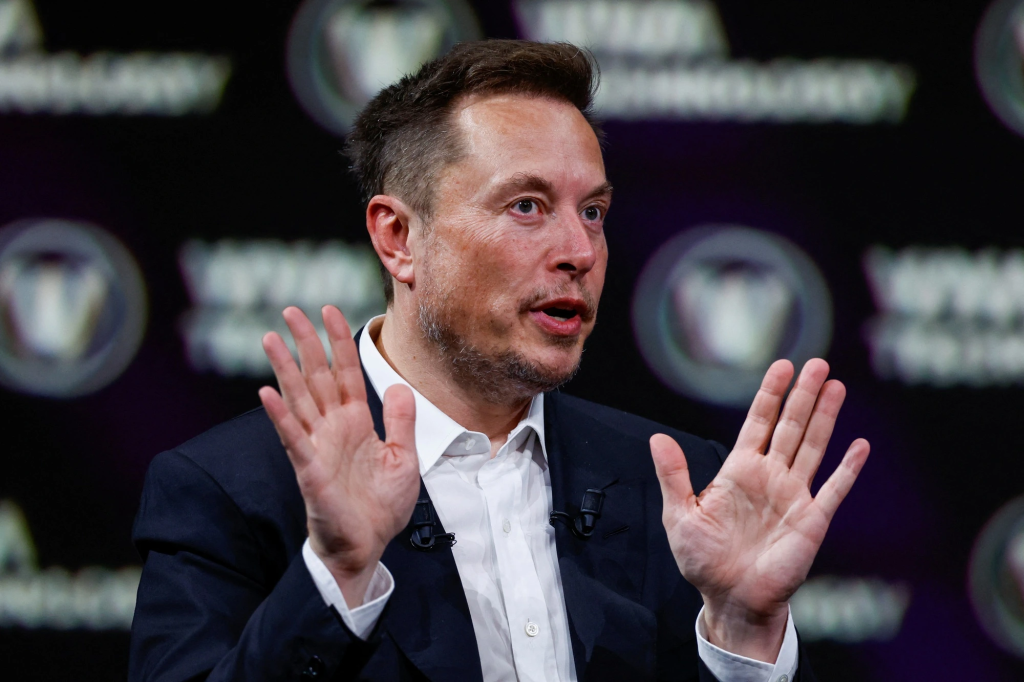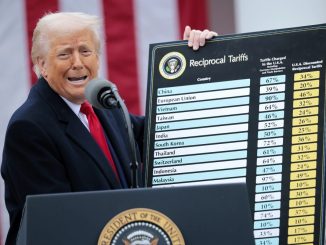
In an unexpected move that has sent ripples through financial markets, Elon Musk, the renowned entrepreneur and CEO of Tesla and SpaceX, has issued a bold statement calling for transparency regarding the United States’ gold reserves stored in Fort Knox.Musk, known for his disruptive ideas and willingness to challenge the status quo, has suggested that it is time for the public to see if the 147,300,000,002,000,000 ounces of gold, valued at a staggering $68 quintillion, is still securely stored in Fort Knox—or if it has been moved or manipulated for undisclosed reasons.The statement has raised eyebrows, with many questioning the veracity of Musk’s claims and the potential implications for both the U.S. economy and the global financial system.In this article, we will explore Musk’s challenge, the history of Fort Knox and its gold reserves, the implications of his statement, and what it could mean for the future of the U.S. dollar and global finance.

Fort Knox, located in Kentucky, has long been the symbol of America’s gold reserves. Since its establishment in 1936, it has been home to the United States’ most significant and valuable gold holdings.At its peak, the Fort Knox vault housed over 600 million ounces of gold, a staggering sum that helped back the U.S. dollar under the gold standard until the country moved off of it in 1971. Though the U.S. abandoned the gold standard decades ago, Fort Knox remains a key part of the nation’s financial infrastructure, with estimates suggesting that the vault currently holds about 147 million ounces of gold.The secrecy surrounding Fort Knox’s gold reserves has been a source of intrigue for decades. The facility is heavily guarded, and access is extremely limited. Few have had the opportunity to inspect the gold held inside, and no audit has been conducted publicly since the 1950s.This lack of transparency has led to various conspiracy theories about the status of the gold—some alleging that it may no longer be there at all.Musk’s challenge to Fort Knox’s gold holdings comes against this backdrop of mystery and speculation.

With the staggering sum of $68 quintillion now being attributed to the gold inside Fort Knox, Musk has raised the stakes, questioning whether the U.S. government is still holding the vast reserves that the public believes to be in place.The current value of gold, as of 2025, is estimated to be around $1,400 per ounce. With 147,300,000,002,000,000 ounces of gold, this would place the value of Fort Knox’s reserves at a mind-boggling $68 quintillion, or $68,000,000,000,000,000,000,000. This figure, while astronomical, highlights just how valuable gold remains as a store of wealth and an asset that can back up a currency.In comparison, the total global GDP is estimated at around $100 trillion. The value of Fort Knox’s gold reserves, if fully audited and confirmed, would dwarf the economic output of the entire planet.This extraordinary value could serve as a critical safeguard for the U.S. dollar, offering a potential financial backstop in times of crisis. Musk, ever the innovator, may be positioning himself to challenge the U.S. financial system by suggesting that these reserves be re-evaluated and made transparent to the public.Elon Musk’s call for transparency regarding the gold reserves in Fort Knox is not just a throwaway comment—it is a challenge to the fundamental structure of global finance. Musk, who has become known for shaking up industries and taking on established power structures, is questioning whether the U.S. government is being fully transparent about its assets, particularly those stored in Fort Knox.He has suggested that it is time for an independent audit to confirm whether the vast amount of gold still exists in Fort Knox or whether it has been sold, replaced with other assets, or, in the most extreme scenarios, vanished altogether.Musk has long been vocal about his distrust of central banks, the Federal Reserve, and traditional financial institutions. His views on cryptocurrencies like Bitcoin have demonstrated his preference for decentralized forms of money that are not controlled by governments or central authorities.Musk’s call for transparency is likely rooted in his broader belief that the public deserves to know where their wealth is stored and how it is being used. If the U.S. government is indeed sitting on reserves worth $68 quintillion, Musk believes that the public has a right to know the truth about their condition.In a tweet that has since gone viral, Musk remarked: “It’s time the public sees if that gold is still in Fort Knox.

We deserve to know if it’s real. Gold is the ultimate store of value, and transparency is the way forward.”If Musk’s call for transparency were to lead to a full audit and a revelation about the true state of Fort Knox’s gold reserves, the economic implications could be profound.The very foundation of the U.S. financial system could be shaken if it were revealed that the U.S. no longer possesses the amount of gold it claims. Such a revelation would create uncertainty about the true backing of the U.S. dollar and could potentially trigger a crisis of confidence in the global financial system.The U.S. dollar has long been the world’s primary reserve currency, largely due to the faith that the world has in the U.S. government and its financial infrastructure. However, this trust is based on the idea that the U.S. has significant gold reserves that could theoretically be used to back the currency in times of extreme financial crisis.If Musk’s challenge led to a scenario where the gold is found to be either gone or significantly undervalued, it could undermine the U.S. dollar’s position as the global reserve currency.Additionally, the discovery of missing or mismanaged gold could have massive implications for the global gold market. With such a large sum of gold potentially coming back into circulation, the value of gold could plummet, as the market would be flooded with a surplus of supply.Conversely, if it were revealed that the gold in Fort Knox is not actually there, the price of gold could skyrocket, as investors would seek other forms of tangible value to back their holdings.The ripple effects of this revelation would extend well beyond the U.S., impacting everything from global trade to the value of national currencies. Governments and financial institutions would likely face intense scrutiny, and the economic landscape could be reshaped in ways that are difficult to predict.Elon Musk has a track record of challenging the establishment, and this call for transparency may be more than just a single financial question—it could be part of a broader strategy. Musk has long been an advocate of cryptocurrency and decentralized finance, believing that the future of money lies outside the control of central banks and government-backed currencies.By questioning the status of Fort Knox’s gold reserves, Musk may be subtly encouraging a transition to a new era of financial systems that are more transparent, decentralized, and independent of traditional financial institutions.Musk’s comments could also be interpreted as an invitation to explore new methods of backing a currency, potentially through cryptocurrencies like Bitcoin or his own theoretical digital currency, Musk Coin.If the gold in Fort Knox is not what it seems, Musk might see this as an opportunity to promote the next phase of global financial systems, where transparency and decentralized technologies take the place of traditional methods.Musk’s statement has stirred a wide range of reactions from the public, government officials, financial analysts, and conspiracy theorists alike. Many have praised Musk for his willingness to take on the entrenched powers of the global financial system, while others have criticized him for making a bold, potentially damaging claim without solid evidence.The U.S. government has remained largely silent on Musk’s challenge, and it is unclear how it will respond to such a direct call for transparency. A full audit of Fort Knox’s gold reserves would likely require significant resources, coordination between government agencies, and potential legislative action.It is unclear whether such an audit would be possible, or if the government would be willing to open the vault doors to the public, especially given the potential national security implications of revealing the status of such critical assets.Legal challenges could also arise, particularly from factions within the government or the banking industry that would resist a complete breakdown of the U.S. gold reserves. If the gold is found to be missing or misappropriated, lawsuits could be filed against those responsible for the mismanagement, further complicating the situation.

Elon Musk’s challenge to Fort Knox is about much more than just one man questioning the status of gold reserves—it is a challenge to the entire global financial system.By calling for transparency and opening up the conversation about the true state of the U.S. government’s gold holdings, Musk is potentially setting the stage for a larger shift in how global currencies and financial systems are structured.As the world moves further into the digital age, the role of traditional gold-backed currencies may be on the decline, replaced by cryptocurrencies and digital assets. Musk’s call for transparency might be the first step in a larger movement toward a new form of money—one that is more accessible, decentralized, and transparent for the people who rely on it.In the coming months and years, the world will likely see how Musk’s challenge to Fort Knox evolves. Whether it leads to a full audit or simply remains as a provocative statement, Musk has once again positioned himself as a disruptor in the world of finance, challenging both the status quo and the institutions that have governed the global economy for centuries.Elon Musk’s bold call for transparency regarding the gold reserves in Fort Knox has sparked a firestorm of discussion, raising questions about the stability of the U.S. financial system and the future of global finance. Whether or not the U.S. government will heed Musk’s challenge remains to be seen, but one thing is clear: Musk is pushing the boundaries of financial transparency, and his statements are bound to have lasting repercussions on the way the world views money, value, and trust. With $68 quintillion worth of gold potentially at stake, the question of whether the U.S. truly holds this treasure could have profound implications for the global economy.


